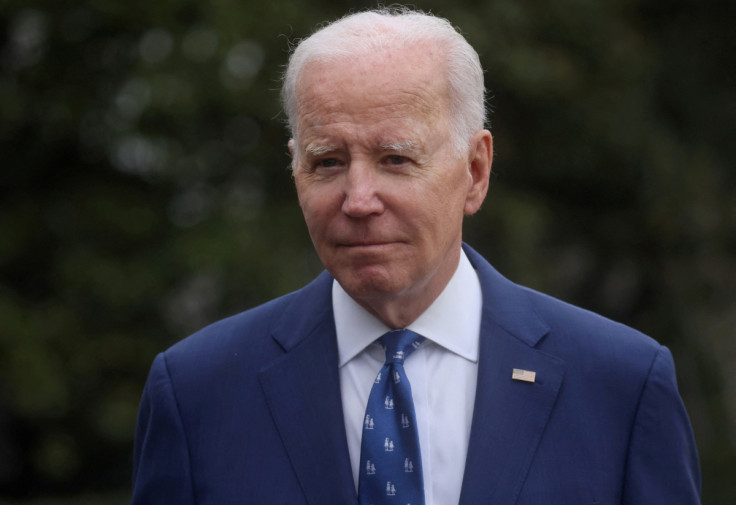Biden Lays Out New Cuba, Nicaragua, Haiti Migrant Border Policy

The United States will use pandemic-era restrictions to rapidly expel Cuban, Nicaraguan and Haitian migrants caught illegally crossing the U.S.-Mexico border, President Joe Biden announced on Thursday as he seeks to gain control of migration.
At the same time, Biden will allow up to 30,000 people from those three countries plus Venezuela to enter the country by air each month, Biden said.
"This new process is orderly, it's safe and it's humane," he said. He said his message to those would-be migrants from Cuba, Nicaragua or Haiti without a U.S. sponsor is: "Do not just show up at the border."
The plan is part of a broader effort to deter record numbers of border crossers and address a political and humanitarian challenge that has dogged the president since taking office in January 2021.
"These actions alone are not going to fix our entire immigration system," Biden said, but they could "help a good deal."
He said that he had sent Congress a comprehensive immigration plan, but that Republicans would not consider it or approve additional money for new asylum judges or officers.
"We don't have enough immigration judges to adjudicate the claims," he said.
Immigration is expected to be a central issue of discussion when Biden travels to Mexico City for a Jan. 10 North American Leaders Summit with Mexican President Andres Manuel Lopez Obrador and Canadian Prime Minister Justin Trudeau.
A senior Biden administration official said the new policy would increase legal pathways to the United States to "continue to deliver consequences for those who attempt to enter the United States unlawfully."
"The legal pathways that we're announcing today are generous, but at the same time there are serious consequences for circumventing them," the official told reporters.
Biden used his speech to press Republicans to stop blocking his immigration reform proposals and border measures and for Congress to provide the necessary resources.
The Democratic president will visit El Paso, Texas, on Sunday, his first trip to the southwestern border with Mexico since taking office.
A senior administration official said Biden, while in El Paso, would address border enforcement operations and meet local officials.
El Paso, a Democratic stronghold with a history of welcoming immigrants, has struggled in recent months to deal with tens of thousands of migrants crossing the border from Mexico.
Under the plan announced on Thursday, Mexico will accept up to 30,000 expelled migrants per month from Cuba, Nicaragua, Haiti and Venezuela, according to a White House fact sheet. In November, U.S. border officials encountered 82,000 migrants from those countries at the border with Mexico, according to U.S. government data.
Migrants who cannot be expelled back to Mexico increasingly will be subjected to a rapid deportation process known as "expedited removal," a senior official said.
Reuters reported last week that the Biden administration planned to implement the new restrictions.
Migrants rights groups and some Democrats have criticized Biden for continued expulsions, which they say contradict his 2020 campaign promise of a more humane immigration system and block migrants from exercising the right to apply for asylum, exposing them to serious risks in Mexico such as kidnapping and assault.
The policy change follows a U.S. Supreme Court ruling in late December that the pandemic-era restrictions, known as Title 42, must stay in place for what could be months as a legal battle plays out.
© Copyright Thomson Reuters 2024. All rights reserved.





















